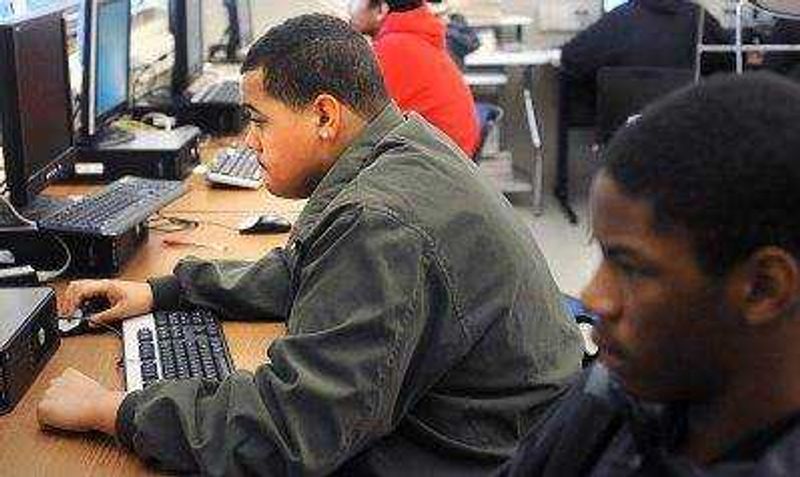Reading program helps students increase vocabulary, test scores
A new program called Reading Plus is being auditioned at Central Academy, and educators can already tell it's increased engagement and enthusiasm for the written word. With what's learned this year, the Cape Girardeau School District hopes to implement the web-based reading intervention program at other campuses, said Sherry Copeland, assistant superintendent for academic services...
A new program called Reading Plus is being auditioned at Central Academy, and educators can already tell it's increased engagement and enthusiasm for the written word.
With what's learned this year, the Cape Girardeau School District hopes to implement the web-based reading intervention program at other campuses, said Sherry Copeland, assistant superintendent for academic services.
Reading Plus was implemented schoolwide at Central Academy -- for grades six through 12 -- at the beginning of the school year, principal Scott McMullen said. Educators say the program not only has helped students improve their reading skills, but has increased their self-confidence.
Copeland noted that while most people think of reading interventions as being for at-risk students, Reading Plus also is being employed for readers who are on track.
"We have a number of students who were advanced on their MAP [Missouri Assessment Program] scores who are actually taking it for enrichment purposes," McMullen said.

Students use the program each morning in homeroom.
English teacher Mary Richards said students are given a pretest to see where their skills are. From there, the individual programs are built and goals are set for each student. The sections of text students read are highlighted by the program to help them with tracking words.
Along with reading intervention, McMullen said it's hoped that enough data can be collected to devise interventions to improve writing across the curriculum as well.
"It has been a really good program," McMullen said, "just generating the data to find out the strengths and weaknesses of our students, giving them repetition on good reading practices, what to look for -- just giving them practice reading and setting time aside to do that has been really beneficial."
Doing it this way also eliminates any embarassment for students.
"They don't have any way of knowing where the other one is on the spectrum," Copeland said.
Some of the data collected so far show where various students are and how they're progressing.
"Some are hung up at various levels," she said. "We are going to work with our trainer to do some additional testing with our kids with [an instrument] called a Visagraph that tests their eye motion when they're reading. ... They've discovered some of these kids who are having so much trouble with reading comprehension, when they test where their eyes are going, they're all over the place, so they're just reading words and there's no comprehension happening."
Copeland said the eyes are supposed to track left to right when people read.
"These kids she's talking about, their eye movements may not be the same. The right eye's moving different from left eye, or they're jumping," she said.
The Visagraph, an eye movement recording device, forces the eyes to track the way they're supposed to -- reading words in sequence.
After a year, Richards said, it will be interesting to see how students are doing. "Some of them have come pretty far and made some strides," she said.
Data are collected on a continuing basis. Richards said she can pull student reports whenever she wants and teachers can do the same for their classrooms.
"I have high hopes for this. ... Reading comprehension is my huge concern. ... Vocabularies have become text talk. ... Kids in my class always say, 'Why are you using such big words with us, Miss Richards?' I say, 'Because there's this huge vocabulary out there, guys, and it's fabulous," Richards said.
rcampbell@semissourian.com
388-3639
Pertinent address:
330 N. Spring St., Cape Girardeau, MO
Connect with the Southeast Missourian Newsroom:
For corrections to this story or other insights for the editor, click here. To submit a letter to the editor, click here. To learn about the Southeast Missourian’s AI Policy, click here.










